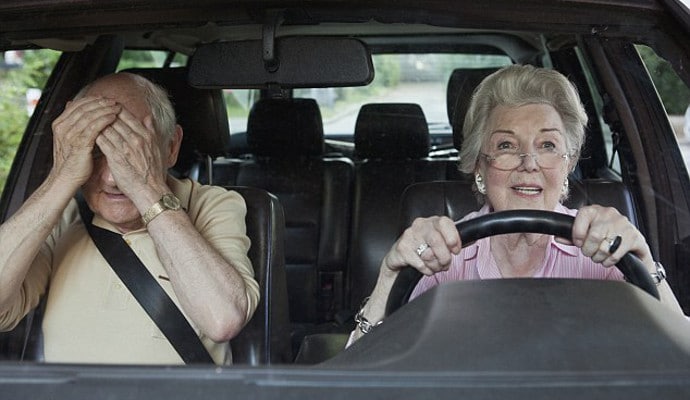The Aging Experience – Just Rock It (Reprint from Huff/Post 50)

The Aging Experience – Just Rock It! Share your stories of elders who rock it!
Several months ago I relaunched my company with a new brand — The Aging Experience with the tag line Just Rock It!. It was a deliberate strategy. Aging is a taboo subject after all. Consider:
- There is age bias, common stereotypes we associate with older folks, like they walk slower or can’t hear well.
- There is something Princeton researchers label Prescriptive Prejudice. These prejudices include:
Succession, the idea that older adults should move aside from high-paying jobs and prominent social roles to make way for younger people. Identity, the idea that older people should not attempt to act younger than they are. Consumption, the idea that seniors should not consume so many scarce resources, such as healthcare. - Society stigmatizes those diagnosed with dementia, including Alzheimer’s as well as the family caregivers of these folks.
My platform has always been about putting the positive spin on aging. Not to say aging doesn’t come with its challenges. But a positive mindset can go a long way in helping you rock your aging years instead of wasting away in them. Here are some examples of how I play this out.
- My first book was entitled Who Moved My Dentures? That should give you an idea off the bat where I stand. It is a book of human interest stories about seniors who rock it, living a quality life in places we most associate with death – nursing homes. In turn, the reader learns lessons about aging and about long-term care options. But it is done in a non-threatening way.
- I couch the family caregiving experience as something that should be seen as an opportunity, not a burden, one where you thrive not just survive. I should know. My caregiving journey just ended with the passing of my mom.
- I encourage people to think about and prepare for aging sooner in life – physically, financially, emotionally.
- I speak to audiences about The Meaning of Life (so presumptuous), eight lessons we can learn from older folks about living a quality life.
So you see it is all about the positive spin on aging, on rocking it as you age. Here are some folks who are indeed rocking it as they age.
- Barbara Beskind, 91, works for IDEO designing products for older adults.
- Winifred Pristell, 77, called “Heavy Metal” is a competitive weightlifter with two world records.
- Fauja Singh set a marathon record, for age 90-plus, of 5 hours 40 minutes at the age of 92, at the 2003 Toronto Waterfront Marathon. He continues to run for pleasure.
You get the idea. There are thousands of stories of other Barbara’s, Winifred’s and Fauja’s out there and we need to surface them, tell them, share them. My intention, with your help, is to find stories of people who are rocking it as they age. And we will share these with the world to show and continually reinforce, positive, active aging. We will turn these into radio interviews, podcasts and You Tube segments. So please be in touch (ac@theagingexperience.com) and tell me about inspirational older folks who can teach us all about being young at any age. We are living longer and to live well we all need to rock our aging years. Thanks.
Senior Driving – Taking the Keys from Mom and Dad

Seniors and driving. Know how to spot the signs when it’s time.
Sensitive Issue-Here’s How to Have the Talk about Senior Driving
Senior driving-it’s a touchy subject. You may be driving with mom or dad and notice something is off. Or receive a call like my sister did where mom was lost in her own neighborhood.
Elders and driving-it’s a touchy subject. You may be driving with mom or dad and notice something is off. Or receive a call like my sister did where mom was lost in her own neighborhood. Maybe mom has bumped into a few trash cans on the street and amusingly told you about them. All of these are warning signs of course.
Triple AAA notes these facts about senior driving on their web site.
- Fifty percent of the middle-aged population and 80 percent of people in their 70s suffer from arthritis, which makes turning, flexing and twisting painful.
- More than 75 percent of drivers age 65 or older report using one or more medications, but less than one-third acknowledged awareness of the potential impact of the medications on driving performance.
- Fatal crash rates increase beginning at age 75 and rise sharply after age 80.
What if I told you that tomorrow, just for a day, you would all of a sudden not have a car available? What if I said a week? You can start to see how your independence would be affected.
A car represents different things to people…a way to get to places for some…status and identity…freedom and spontaneity. What it represents also says a lot about how you approach the situation.
How can you tell when a person is starting to have problems?
- The best thing is to observe directly.
- Distinguish between serious signs of trouble and less so. For example, confusing the gas with the brake is serious. Riding the brake maybe less so. If serious take immediate action. If less so, observe over time, take notes and look for a consistent pattern. These facts will help when having a conversation.
- Things to look for include:
- Struggling to change lanes
- Problems turning particularly left turns
- Driving too slow or too fast
- Reaction time
- Other drivers honking
- Hitting curbs
- Following signals
- Scrapes on cars
- Often older adults will start self-correcting, not driving at night, in bad weather, on freeways. My mom started going places by making all right hand turns. Praise these behaviors but also take them as a sign that things might be changing.
- Check in with their friends, as they may know more than you do. Have they gotten lost, had near accidents.
- Check with their physician or pharmacist as medication changes can impact driving.
How do you start the conversation?
Ideally you start a conversation over time not in a crisis situation.
You should initiate casual conversations. Look for an opening in something they say as well. Example, say you are watching the news and they are reporting on an accident. Or perhaps the weather is turning bad. You could say to mom or dad something about the dangers of that particular interstate and how if it were you, you would consider alternate routes. Or in regards to the weather, remark that it really isn’t the best idea to drive in an type of inclement weather.
Have empathy. Validate their emotions and go back to why a car is important for them. So for example if it is to get places, then have a plan in place for alternative transportation. If it is about status and identity, have the car parked at their house and let others use it to drive them. If it is about freedom and spontaneity, plan spur of the moment trips.
First seek to see if there is a way to keep the person behind the wheel.
Make modifications –
- Stop driving at night.
- Avoiding freeways and interstates.
- Stop driving in bad weather.
- Designate places they can drive safely and easily.
How to Get Young People Involved in Aging
The Missing Piece to Motivate Student Involvement in Aging
(contributed by Carol Marak, SeniorCare.com)
The one industry that’s not running short on jobs is Gerontology and Geriatrics. However, attracting students to study the discipline runs thin. It could be due to lack of geriatrics-trained educators, absence of financial incentive, and weak student demand.
The field holds unique needs of older patients and valued geriatric attention, but the limited exposure to the aging segment serve barriers to improving senior care training. Despite the advocacy aging and senior care receives, the number of providers with specialized training in geriatrics remains disproportionate to the growing population of older adults.
Last fall, SeniorCare.com announced it’s annual Aging Matters Scholarship. Every June, the scholarship will grant college students who either cares for a loved one and demonstrates that “Aging Matters,” works within the senior community, or intends to pursue a career that positively impacts the elder population. “The company enjoyed receiving hundreds of applicants, and we’re excited to see so many young minds filling the need of our aging population,” remarked Shawn Schulze, Seniorcare.com’s co-founder.
This week, the company announced the winner of the Aging Matters Scholarship, Gregory Troutman, who is completing a Master degree in Bioethics and will be starting medical school next year. Since graduating from Lafayette College in May 2013, Gregory worked as a Clinical Research Coordinator in cardiology to gauge whether or not his passions truly lie in healthcare.
Since working in the position, he has decided to follow his interest in cardiology and to work with older adults. Gregory adds, “I have been amazed to see how resilient elderly patients can be when faced with something that initially seems like a horrifying illness. I have enjoyed shadowing physicians who are experts not only in taking patients’ histories and developing treatment plans but making this a two-way conversation where elderly patients can express their values and interests and have an active role in their health-related decisions.”
The industry needs more students like Gregory. So, to learn what the geriatric professionals can do to motivate young students to select this area of study, I asked the Seniorcare.com Aging Council,
“What incentives would you use to get fresh minds involved in the senior care industry?”
The promise of jobs! Also, get young people to volunteer or intern in places which will allow them to interact with older adults–many have no experience engaging with older people since families are often spread out across the country. Donna Schempp, Family Caregiver Alliance.
Create more intergenerational opportunities and volunteer programs. Exposure to older adults is one of the best motivators. It would also be good to work with school counselors, career offices, doing career days, sharing the growing need and opportunities. Shannon Martin, Aging Wisely.
Let’s face it; Gerontology isn’t as sexy as technology – unless it’s technology for helping the aging population. What young person wouldn’t be interested in a high-tech, growing, humanitarian, and healthy compensation industry? The perception has to move to this positioning to get them motivated! Rhonda Harper, Penrose Check-in Services.
Exposure to seniors is imperative. In other cultures, generations live together, and there is an enormous respect for elders. In this country, grandparents can be thousands of miles away. So surrogates, if you will, are needed. Schools need to have inter-generational programs. Long-term facilities need to have inter-generational programs. Exposure is the key. Anthony Cirillo, The Aging Experience.
We need to highlight the fact that there will be jobs galore as the aging industry is a growth industry and will continue to be with 10,000 older adults turning 65 each day for the next 14 years. It is an area that will offer lots of exciting employment opportunities, and creative and non-traditional thinkers will be required. Betsie Sassen, Capitol Consulting, LLC.
People from all disciplines such as finance, medicine, or even fashion can (and should) play a role in the aging industry, creating value for the very last part of life in different ways. It is essential create a habitat that 1) nurtures passion, dedication and talent by setting up a promising career within a traditional market, and 2) inspires the young by passing on life experiences of elders. Jeff So, Rondish Care.
The rapid expansion of technology and person-centered care will increase interest in senior-related businesses. Young people will recognize opportunities in the longevity economy and often bring a sense of social entrepreneurship to foster jobs. Fritzi Gros-Daillon, HouseholdGuardians.com.
The biggest motivator for Millennials today is to be heard. Their creativity and knowledge for the use of technology is unsurpassed. We can attract great talent if students understand the statistics of this growing demographic and what they are facing. It would allow the students to think outside the box and come up with creative ideas. Scot Cheban, Caregiving Answers.
Our industry needs a shake up, and we need fresh minds to help solve our problems and issues. Contributing to offset the cost of education may help garner the interest of young minds. Because of the sheer numbers of aging people, making money, having a career and making a difference in this world are real possibilities, as long as they have a passion to care.Laurie Miller, AppleCareandCompanion.com.
Eating Chocolate Improves Cardiovascular Health
Researchers at the University Hospital Düsseldorf have studied the effects that dietary cocoa flavanols (chocolate) can have on the blood vessels of healthy, low-risk individuals with no signs or symptoms of cardiovascular disease. Flavanol is a naturally occurring antioxidant found in various types of plants. Its antioxidant qualities can be extremely important to maintaining a healthy body. Coco beans are one plant that contains a significant amount of these compounds and of course coco is used to produce chocolate.
Improving Cardiovascular Health and Lowering the Risk of Cardiovascular Disease (CVD) by Eating Chocolate
The study in the British Journal of Nutrition looked at 100 healthy, middle-aged men and women (35-60 years) with low risk of CVD. The participants were randomly and blindly assigned into groups that consumed either a flavanol-containing drink or a flavanol-free control drink, twice a day for four weeks. The researchers also measured cholesterol levels in the study groups, in addition to arterial stiffness, blood pressure and the dilatation of blood vessels, which decreases blood pressure.
“We found that intake of flavanols significantly improves several of the hallmarks of cardiovascular health,” said Professor Kelm, lead researcher. “We found that the cocoa flavanols had reduced the 10-year risk of being diagnosed with CVD by 22% and the 10-year risk of suffering a heart attack by 31%.”
As Depression Worsens Dementia Risk Increases

Worsening depression can also impact earlier dementia.
Depression Symptoms That Steadily Increase in Later Life Predict Higher Dementia Risk
Depression symptoms that steadily increase in older adults are more strongly linked to dementia than any other types of depression, and may indicate the early stages of the disease, according to a study published in The Lancet Psychiatry journal.
Symptoms of depression are common in people with dementia, but previous studies have often looked at single episodes of depression, failing to take into account how depression develops over time.
The authors identified five different trajectories of depressive symptoms – low depression symptoms (2441 participants); initially high symptoms that decreased (369); low starting scores that increased then remitted (170); initially low symptoms that increased (255); and constantly high symptoms (90) (figure 1).
Of the 3325 participants, 434 developed dementia, including 348 cases of Alzheimer’s disease. Only the group whose symptoms of depression increased over time was at an increased risk of dementia– 22% of people (55/255).
The authors say their findings support the hypothesis that increasing symptoms of depression in older age could potentially represent an early stage of dementia. Check with your mental health therapist.










